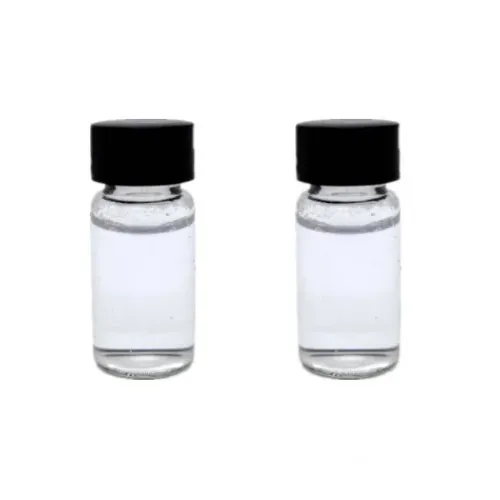Warning: Undefined array key "title" in /home/www/wwwroot/HTML/www.exportstart.com/wp-content/themes/1198/header.php on line 6
Warning: Undefined array key "file" in /home/www/wwwroot/HTML/www.exportstart.com/wp-content/themes/1198/header.php on line 7
Warning: Undefined array key "title" in /home/www/wwwroot/HTML/www.exportstart.com/wp-content/themes/1198/header.php on line 7
Warning: Undefined array key "title" in /home/www/wwwroot/HTML/www.exportstart.com/wp-content/themes/1198/header.php on line 7
Ago . 07, 2024 02:20 Back to list
The Impact of Aspartame in Chewing Gum on Health and Consumer Preferences
The Role of Aspartame in Chewing Gum Benefits and Considerations
Aspartame, an artificial sweetener, has gained popularity over the years as a sugar substitute in various food products, including chewing gum. For those who are health-conscious or looking to reduce their sugar intake, aspartame offers a compelling alternative to traditional sweeteners. This article explores the role of aspartame in chewing gum, its benefits, and some considerations for consumers.
What is Aspartame?
Aspartame is a low-calorie sweetener made from two amino acids aspartic acid and phenylalanine. It is approximately 200 times sweeter than sucrose (table sugar), which means only a small amount is needed to achieve the desired sweetness. Approved by the U.S. Food and Drug Administration (FDA) in 1981, aspartame is commonly used in various products, including soft drinks, candies, and chewing gum.
Benefits of Aspartame in Chewing Gum
1. Calorie Control One of the most significant benefits of using aspartame in chewing gum is its contribution to calorie reduction. Traditional chewing gum sweetened with sugar can contain a substantial number of calories, which can hinder weight management efforts. Aspartame-sweetened gum typically contains fewer calories, making it an appealing option for those watching their weight.
2. Dental Health Chewing gum sweetened with aspartame, rather than sugar, can help reduce the risk of dental cavities. Sugar is a known contributor to tooth decay, as it fuels harmful bacteria in the mouth. In contrast, aspartame does not promote bacterial growth, making sugar-free gum a better option for oral health.
3. Diabetes-Friendly Option For individuals with diabetes, managing blood sugar levels is crucial. Aspartame provides a sweet taste without the high glycemic index associated with sugar. As a result, those with diabetes can enjoy the flavor of chewing gum without worrying about significant spikes in blood glucose levels.
aspartame in chewing gum

4. Taste and Variety Aspartame enables gum manufacturers to offer a range of flavors and varieties without the associated calories of sugar, enhancing consumer choice. This variety can encourage people to chew gum as a way to enjoy sweet flavors without the guilt.
Considerations and Concerns
While aspartame has several advantages, there are some considerations that consumers should be aware of
1. Phenylketonuria (PKU) Individuals with the genetic disorder phenylketonuria must monitor their intake of phenylalanine, one of the components of aspartame. Products containing aspartame are required to carry a warning label for these consumers.
2. Public Perception and Controversy Despite approval by health authorities worldwide, aspartame has been the subject of debate and controversy, with some groups alleging potential health risks. The scientific consensus is that aspartame is safe for the general population when consumed within established daily limits. However, ongoing research continues to investigate its long-term effects.
3. Taste Sensitivity Some individuals have reported a distinct aftertaste associated with artificial sweeteners, including aspartame. Personal preferences vary, and some consumers may prefer natural sweeteners or no sweeteners at all.
Conclusion
Aspartame plays a significant role in the world of chewing gum, providing a low-calorie alternative for those looking to indulge without the added sugars. With benefits ranging from dental health to calorie control, it is an attractive option for many consumers. However, it is essential to be informed about potential concerns and individual health considerations. By staying informed, consumers can make choices that align with their health goals and preferences, enjoying the sweet taste of chewing gum without compromising their well-being.
Latest news
-
Certifications for Vegetarian and Xanthan Gum Vegetarian
NewsJun.17,2025
-
Sustainability Trends Reshaping the SLES N70 Market
NewsJun.17,2025
-
Propylene Glycol Use in Vaccines: Balancing Function and Perception
NewsJun.17,2025
-
Petroleum Jelly in Skincare: Balancing Benefits and Backlash
NewsJun.17,2025
-
Energy Price Volatility and Ripple Effect on Caprolactam Markets
NewsJun.17,2025
-
Spectroscopic Techniques for Adipic Acid Molecular Weight
NewsJun.17,2025

